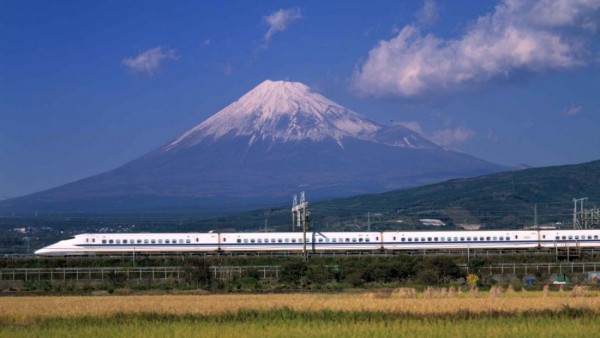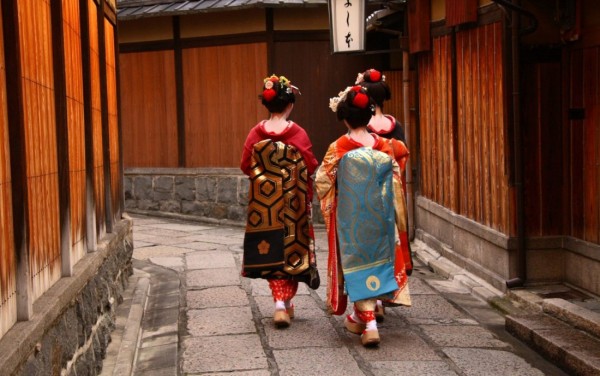This information has been compiled for your reference in good faith but please use this only as a general guide. We advise you to check with relevant authorities with regard to the latest requirement for passport, visa, travel advisory, entry restrictions, health requirements, local currency etc as these are subjected to change with without prior notice and our information given below may not be as updated.
Best time to go: You can travel to Japan any time of year but the best times are spring (March to May) and autumn (September to November).Spring is the time to see the famous cherry trees in bloom while autumn brings pleasant temperatures and autumnfoliage. Travelling during winter (December to February) can be cold, particularly on the Sea of Japan coast, while summer (June to August) is generally hot and often humid. June is the rainy season which contrasts yearly from daily downpours to very little rain. The peak holiday seasons, particularly Golden Week (late April to early May) and the mid-AugustFestival of the Dead, are popular for domestic travellers and Japan basically shuts down over the New Year period.
Visa: New Zealanders do not require a visa to enter Japan. Ordinary and official passport holders can travel visa-free for up to 90 days.
Currency: ATM’s are common in Japan but most only accept Japanese issued cards so make sure you carry some foreign cash and some credit cards just to be on the safe side. The currency in Japan is the yen (¥) and banknotes and coins are easily identifiable. There are ¥1, ¥5, ¥10, ¥50, ¥100 and ¥500 coins; and ¥1000, ¥2000, ¥5000 and ¥10, 000 banknotes.
Health: There are no recommendations for any special vaccinations or medications for Japan beyond the normal immunization program available in New Zealand. There are general food and water hygiene-related illnesses which can be prevented with slight caution and it is advisable to protect yourself from animal/insect bites. Consult your doctor well in advance as you will experience change in climate, environment, food and water and general hygienic conditions. Your doctor will be able to help you prepare better.
Food and drinks:The traditional food of Japan is based on rice, miso soup and various other dishes, with an emphasis on seasonal ingredients. Side dishes often include fish, pickled vegetables and vegetables cooked in broth. Fish is common either grilled, served raw as sashimi or in sushi. Seafood and vegetables are also deep-fried in a light tempura batter. Other than rice, staples are soba or udon noodles. Japan has many simmered dishes such as fish products in broth called oden, or beef in sukiyaki and nikujaga. Western food is commonly available in most places.
Safety & security: Like in any other part of the world, a few precautions need to be taken to avoid any problems. Please do not leave your bags unattended at any times. Please use safe deposit in your hotel room or Reception to keep your money or valuables including passport. When you leave the room, it is recommended that you lock your suitcase. It is also recommended to carry a copy of your passport including the visa page.
Clothing: You can dress up casually and conservatively in Japan. Shorts, t-shirts and any light clothing are absolutely fine during warm summer months. During winter months, it can get very cold and you should carry woollens and jacket (for morning and evening hours). Please prepare yourself as per the region you are going to visit. Please take good walking shoes with non-slip sole as you will be required to walk frequently during your sightseeing programs and sometimes on uneven surface. If you have tattoos, you may prefer to cover them in public places as the Japanese associate tattoos with their Mafia and some places may refuse you entry.
Language: Though English is widely spoken and understood it is a good idea to have a few Japanese phrases up your sleeve. You may feel a language barrier interacting with people in restaurants and shops etc. Most good Hotels have Reception staff fluent in English but there are exceptions. You local guide is the most reliable person to ask for help in case you are unable to resolve anything with the Hotel or restaurant or even while shopping.
Gratuities: Tipping is not mandatory but it is highly appreciated by the people who serve you. If you want to tip to show your gratitude, consider giving a small gift rather than cash.
Airport tax: Generally your international air ticket should include airport tax on international departure. Domestic taxes are also included in the air tickets.
Internet: Internet is common in hotel rooms and a lot of hotels also have internet facilities at their Reception or Business Centre for use by guests at a small fee. Internet cafés are plentiful and usually located near hotels, train stations, and sometimes open 24 hours. Free public Wi-Fi is becoming more widespread and can be found near major airports, train stations and tourist centres.
Telephone:Public telephones accept 10 and 100 yen coins and/or telephone cards. A local call costs around 10 yen per minute. You can purchase prepaid telephone cards for 1,000 yen from vending machines, train stations, and convenience stores. Dialling code for Japan is +81 and if you are calling New Zealand from Japan, the code is +64. Telephone numbers of Hotels arranged by us will be supplied to you in your itinerary. It is recommended to buy a mobile SIM card on arrival if you need to be in touch with people back home.Rental phone service is available at Narita Airport or Kansai Airport
Time Difference:Japan is 4 hours behind New Zealand. All of Japan is on the same time zone and they currently do not observe Daylight Saving Time.
Photography:Taking photographs at some establishments are prohibited – please check with your local guide if you are not clear about any particular building. If you are taking photos of locals, please politely ask for prior permission.
Electricity: Voltage supply in Japan is 100volts with 2 flat pins; it is therefore advised to purchase a plug adapter beforehand.Please visit this website for more information on plugs:https://www.korjo.com/Product-Range/Adaptors-(1).aspx
Postage:Post from/to Japan is quire reliable and efficient.Post boxes are located near street crossings, buildings and public facilities. Please ask for help from your local guide if you need to post something from or within Japan.
General:Japan is an enchanting mixture of ancient traditions, beautiful landscapes and fascinating culture. With an eventful history, Japan manages to combine age old traditions, Temples, Shrines and Museums with cutting edge technology and wonderful architecture seamlessly. Japan offers incredible food, amazing shopping, historic monuments, wonderful kabuki (Japanese performing arts) and traditional geisha. Enjoy skiing and snowboarding in world class resorts, take a relaxing dip in Hot Springs, marvel at the Autumn Leaves and Cherry Blossoms or hike through one of the many National Parks.
Cities of interest:
Tokyo: A quarter of all Japanese residents call Tokyo home, many of them live outside of the city’s central districts. With towering skyscrapers and bustling crowds Tokyo can seem a little frightening at first but is blessed with a low crime rate, grand architecture, fascinating culture and tranquil interior spaces. Tokyo is home to 23 city wards and the most noted are; Shinjuku, an important District with multiple skyscrapers, the best Hotels, a booming business district and the huge shopping area in Takashimaya Times Square. Shibuya is an enormous transport hub and is packed with shopping, dining and nightclubs. The intersection at the exit to the Station at Hachiko is crowded, filled with colourful neon billboards and popular for films and photos.Roppongi has a young party culture and the lively night scene continues into the wee hours. The Zoo, temple, shrine and concert hall at Ueno Park constitute Tokyo’s “old town”. Ginza is where you will find upmarket shopping and fine dining with hotels catering for the mature, affluent traveler with refined tastes. Ryogoku Sumo Stadium is the home of Sumo Wrestling and the best place to watch the sport. Wrestlers have trained and competed here since the 1600s.
Kyoto: Home to the origin of Japanese culture where you will see plenty of Shrines, Temples and historical monuments. The huge Buddhist Kiyomizu Temple is a must see, made of wood but not one nail was used in the construction. The Golden Kinkaku Temple was built in 1397 and is covered in gold leaf and the beautiful and peacefulRyoan Temple. Kyoto is the perfect place to encounter a Geisha in the Gion District, participate in a Japanese Tea Ceremony or Zazen (Zen practice) and to understand and get a real Japanese experience.
Osaka: With a more downtown atmosphere than Tokyo Osaka is the second biggest city in Japan and known as a city of commerce and Japanese cuisine. Here is where you can visit Osaka Castle, Kaiyukan which is one of the biggest aquariums in Japan, and Universal Studio Osaka.

